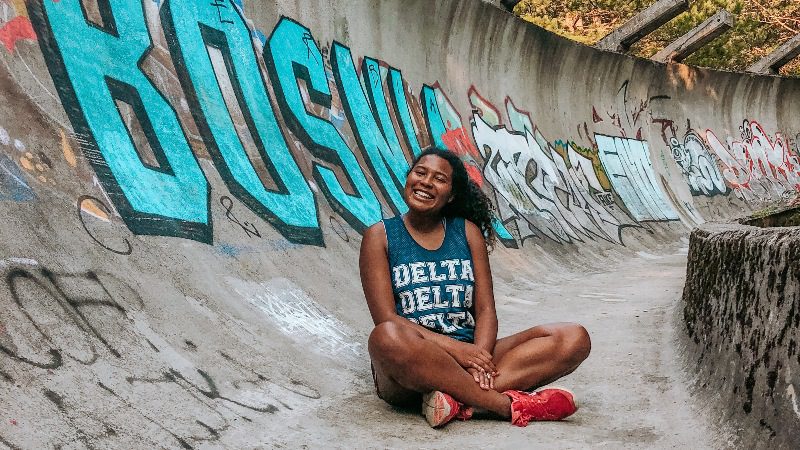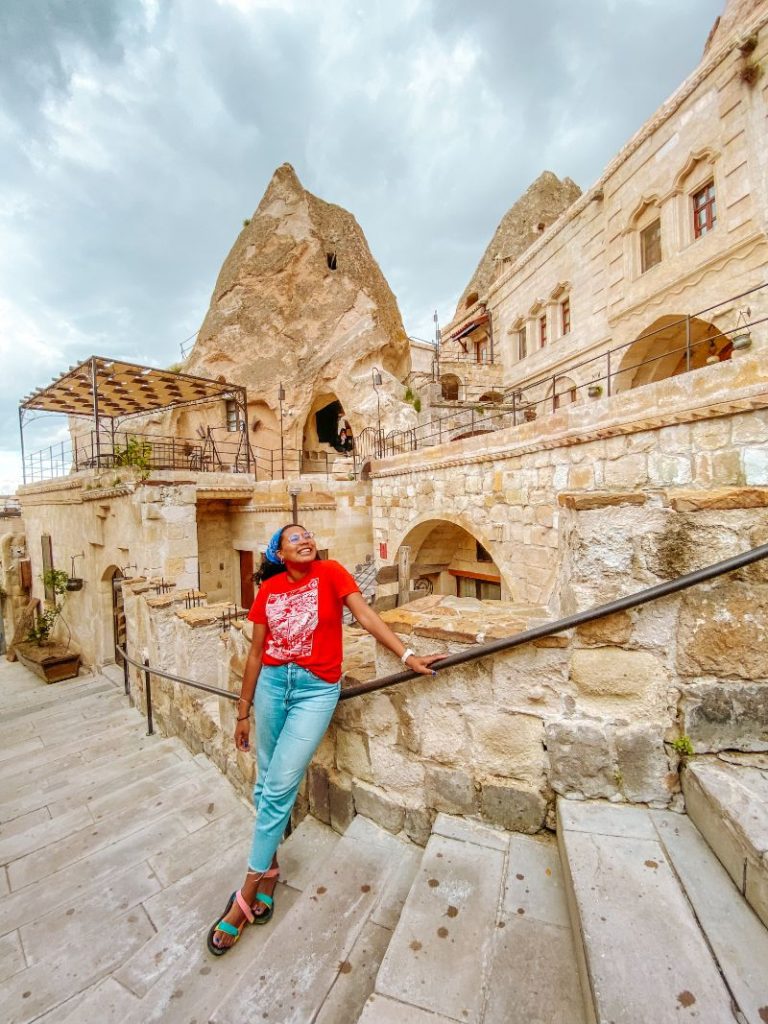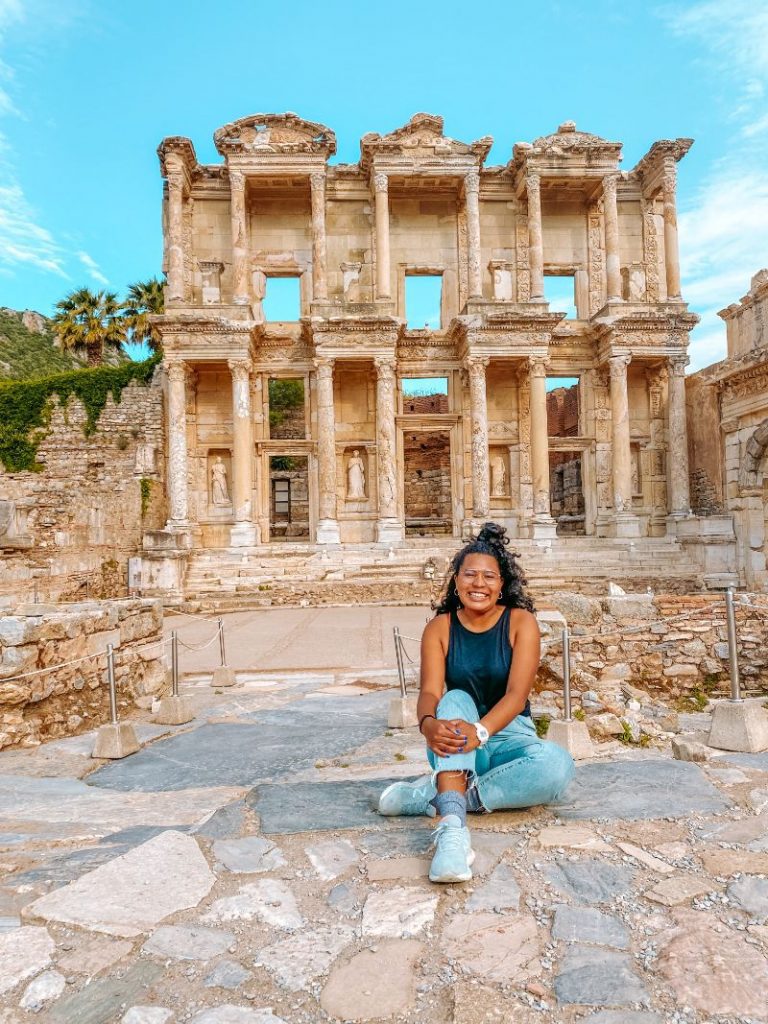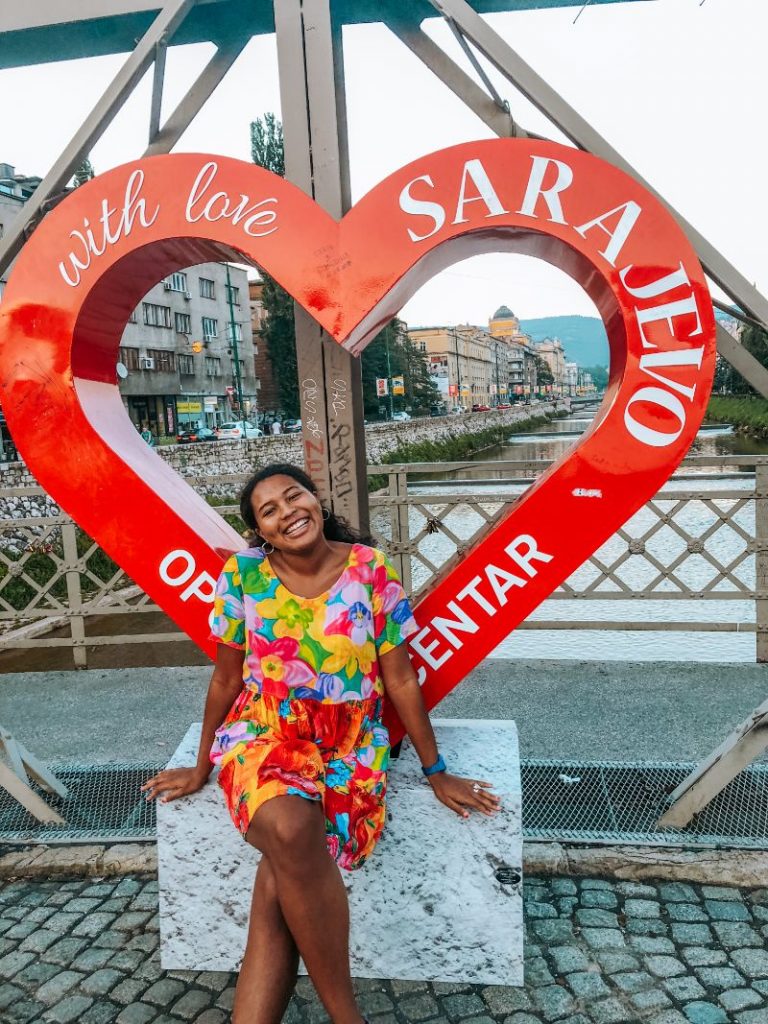
Getting lost on public transportation. I feel homesick. Baggage loss. These are common experiences that all travelers face at one time or another. Traveling while black is different.
As in most other social aspects of life, black travelers encounter and worry about a whole host of other problems, interactions, and awkward scenarios.
As I travel, I often find myself tripping over experiences that are, sadly, all too common among the black travel community.
Unwanted staring and touching
There's nothing like strolling the streets of Sarajevo, Bosnia and Herzegovina, feeling every pair of eyes on your back - and then having the bakery employee caress your hand after paying...

Despite the global black community's contribution to pop culture and increased access to travel over the past few decades, there are still many places in the world where locals have never seen a black person. Hotel concierges, waiters, and others are often fascinated by the changing skin tones, different hair textures, and dynamic hairstyles.
While feeling like a fish in a tank never feels comfortable, I think 90% of the stars are positive and don't come off any malicious undertones. I use these experiences as a way to open up conversations about Why I visit a particular destination and try to learn more about the backstories of the locals. This simple shift in perspective allowed me to get to know my tour guide in Cappadocia, turkey and a group of local water polo players at Danče Beach in Dubrovnik, Croatia Honestly, openly and without prejudice.
I realize that I travel because I am curious about other cultures. Locals often stare because they are curious about me and my culture too.
People who take your photo
The awkward moment when you're walking around the ancient grounds of Ephesus, Turkey and a teen points at their phone. You think they want you to take their picture, but in reality they want a picture with you...

When I travel to places with few black faces in the community, I expect to have my picture taken at one time or another. We live in a digital age where people want to document every moment of their lives. For this reason, it is not surprising that locals would like to take pictures of me or other black travelers, much like a group of girls of primary school age in Pamukkale, Turkey, approached me to ask for a selfie with me.
Photographs are completely personal and intimate experiences, so I believe it is up to each black traveler whether or not they agree to have their picture taken. I also believe I have the right to ask strangers to delete a photo of me if they don't ask for my permission. There is a historical link between photography and the exploitation of black bodies, so there is a fine line between cultural curiosity and being treated like an animal in a zoo.
Comparison to random black celebrities
"Beyoncé/Serena/Rihanna, is that you?"
I will never forget the first words of my Airbnb host in Bihac, Bosnia and Herzegovina He said to me. Has anyone ever told you you look like Serena Williams? From that moment on, for a long 72 hours, he referred to me exclusively as "Serena."
To him, I was Serena, to others Beyoncé, and even to some Rihanna, though there is little or no resemblance between me and these celebrities except for the color of our skin. Although these comments send a slight shiver through my body, I understand that they are meant to be inviting and serve as an entry point for conversation between seemingly "different" people. Locals look for ways to connect with black travelers, and for the most part, they believe that race is the only common topic we can discuss. To make it clear that black people are not a monolith, I try to incorporate other interests, hobbies, and topics into our conversations to help build meaningful connections.
Microaggressions from other travelers
"Where are you? truly From?"
Not all travelers are culturally sensitive or aware. While travel provides an opportunity for thoughtful interaction with other cultures, some travelers fall victim to ignorance and choose to perpetuate stereotypes. As he sat on the patio of a hostel enjoying music and a fiery red-orange sunset in Hvar, Croatia, a fellow guest dancing to Drake and Rihanna exclaimed to the dance circle, “I bet Malia can teach us how to dance!”
Enter the minute. Everyday, subtle, and intentional—if sometimes unintended—interactions or behaviors that convey a kind of bias toward historically marginalized groups. Constantly addressing every instance of aggression or stereotypes is annoying and often drains my precious energy devoted to sightseeing, tasting local cuisine, and language practice. In general, short answers are my best tools for helping turn the conversation into a less annoying topic.
racial profiling
“Excuse me miss, do you need any help?”

I am happy to report that 90% of my travels are free of explicit racism. I haven't experienced much racial oppression, but when you're traveling as Black travels, there's always the possibility that you might encounter discrimination. While shopping in high-end stores in London, shop assistants would approach me in a beeline-like fashion, asking if I needed assistance every five minutes. While the casual observer might assume the staff were simply doing their jobs, black travelers know that the discrimination we face often takes the form of us being unwelcome or watched - and watched - in places.
The hypervigilance surrounding black bodies in supermarkets is rooted in the stereotype that blacks are essentially poor, thieves, and criminals. It is imperative that black travelers continue to speak out about the racial profiling we face, and that non-black travelers acknowledge the racial disparities in the service component of tourism. Fair treatment of all begins with recognizing and adjusting the way we speak and interact with others.
If you want to follow Malia's adventures, you can check out her website, alikaadventure.com or follow her on Instagram @employee.
Source link
0 Comments